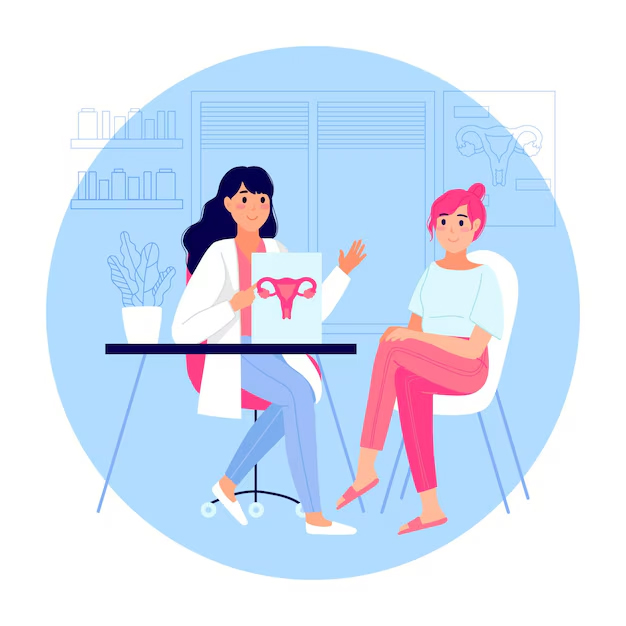In the days leading up to a girl’s periods, she frequently feels cramps in the abdominal area. While some pain during that time is normal, if it interferes with her day-to-day life, it becomes a problem and calls for a probable doctor’s visit. Many women have mild to moderate cramping for a couple of days while their period is on, but if the pain is unbearable or has other accompanying symptoms like fever, it is advisable to seek medical advice. Dr Tejal Kanwar, consultant gynaecologist, Ujaas (an initiative by Aditya Birla Education Trust) writes that to think severe pain is just a part of regular periods is not only wrong, it is also harmful. Here’s more.
Why Painful Periods Are Not Always Normal
A normal period pain is described as some discomfort or cramping in the lower portion of a woman’s abdomen, which can get radiated to her thighs or back. This is often most intense during the first 2 days of the period and goes away in a few days. However, when this same pain persists, doesn’t ebb away with painkillers, and hampers your daily activities and life, it’s a serious case, mentions Dr Kanwar.

Hot water bottles and over-the-counter painkillers are enough to deal with the pain generally, “but if it gets so bad that you can't go to work or school or are in so much pain that you can't do anything else, you should see a doctor,” he adds.
Ignoring this situation and thinking “that severe period pain (medically known as dysmenorrhea) is something you have to deal with” is harmful and dangerous. “It keeps a lot of women from getting the help they need, which causes years of unnecessary pain and, in some cases, the worsening of underlying conditions,” he rightly points out.
Don't Miss:4 Most Searched Home Remedies For Period Pain: Year Ender 2024
So, what kind of pain signifies you need help? If your period pain is:
- So bad that you can't do your daily tasks
- Getting worse over time.
- Not responding to regular over-the-counter painkillers
- Heavy bleeding
- Discomfort during sex
- Pain when you urinate
- Pelvic pain that lasts all the time (even when you're not on your period)
“These signs may point to underlying illnesses that need to be identified and treated,” he says. Meanwhile, the following are common causes of excruciating menstrual pain:
- Endometriosis: The growth of endometrial lining or uterine-like tissue outside the uterus.
- Uterine fibroids: Non-cancerous growths in the uterus.
- Adenomyosis: The growth of uterine lining tissue into the uterine wall's muscle.
- Pelvic Inflammatory Disease (PID): Infection of the reproductive organs.
- Ovarian cysts: When sacs on the ovaries are filled with fluid.
Why To Seek Medical Help?

Now, if you ignore these symptoms, they won’t possibly go away. Instead, it will worsen the conditions, which may have an effect on your overall quality of life, fertility, and general health.
“Your lifestyle can be greatly enhanced by an accurate diagnosis, which can result in efficient management techniques, such as hormonal therapies, particular medications, and minimally invasive procedures. A physician can perform a comprehensive assessment, talk about symptoms, and make recommendations,” wraps up Dr Tejal Kanwar, consultant gynaecologist, Ujaa (an initiative by Aditya Birla Education Trust).
So, in the end, it needs to be reiterated that one must listen to their body and understand its wants and needs in order to take the necessary steps. Neglecting a debilitating periods pain can get manifested in very many ugly ways. So, always hit the doctor’s clinic when the situation demands so that your life doesn’t get out of control.
Don't Miss:What Are Period Stigmas And How To Combat Them: Know From Health Expert
If you liked this story, please share it. For more such articles, stay tuned to HerZindagi.
HerZindagi Video

Take charge of your wellness journey—download the HerZindagi app for daily updates on fitness, beauty, and a healthy lifestyle!


Comments
All Comments (0)
Join the conversation